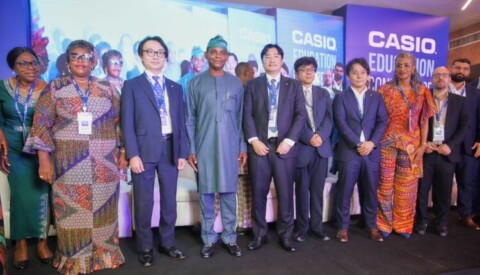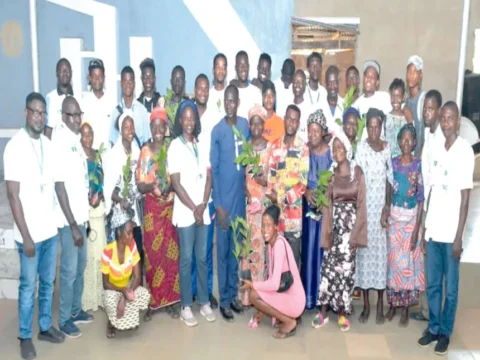The Federal Government has announced that the full implementation of the newly introduced curriculum on Information Technology and Digital Economy will begin in January 2026.
The Director General of the National Information Technology Development Agency (NITDA), Kashifu Inuwa Abdullahi, disclosed this in Abuja during the launch of the book “The Power of a Teenager: 50 Ways to Inspire Change,” authored by Chairman of the House of Representatives Public Accounts Committee and Founder of the Children of Africa Leadership and Values Development Initiative (CALDEV), Rep. Bamidele Salam.
Represented by NITDA Director Dr. Ayodeji Eniola, Abdullahi explained that one of President Bola Ahmed Tinubu’s key directives to the agency is to accelerate Nigeria’s development in information technology and the digital economy. He noted that this drive is central to diversifying the nation’s economy.
He revealed that the new curriculum—approved for implementation nationwide—integrates comprehensive digital literacy skills from kindergarten to tertiary institutions and will officially take effect in all schools starting January 2026.
Abdullahi added that the Agency is also training Nigeria’s workforce across federal and state institutions to enhance digital literacy. Through partnerships with the NYSC, community groups, and market associations, NITDA is working to ensure that citizens across all sectors are equipped with essential digital skills. These efforts, he said, are aimed at achieving the President’s directive that 70 percent of Nigerians become digitally literate by 2027.
He further stated that teacher training has already commenced nationwide to support the rollout of the new curriculum. Earlier in the day, the NITDA DG joined the First Lady at the Presidential Villa to celebrate the graduation of women trained in digital literacy.
In his remarks, President Bola Ahmed Tinubu—represented by Senior Special Assistant to the National Assembly (House of Representatives Liaison), Dr. Ibrahim Olarenwaju—reaffirmed the administration’s commitment to the development of Nigerian children. He commended Rep. Salam for his dedication to youth leadership and urged stakeholders to contribute meaningfully to shaping the minds of young Nigerians.
Vice President Kashim Shettima, represented by Senior Special Assistant Dr. Kingsley Uzoma, also praised the initiative, describing it as a powerful demonstration of the potential within Nigerian children and aligned with the administration’s youth empowerment agenda.
Speaking at the event, Rep. Bamidele Salam reflected on CALDEV’s achievements since its establishment in 2015. He expressed concern about the gaps in Nigeria’s education content, particularly in leadership development, and noted that advanced countries integrate leadership training into their school systems.
He explained that CALDEV was created to bridge this gap by nurturing children with strong values and leadership capabilities. He highlighted the impact of the National Children Leadership Conference, which has grown significantly since 2021 and has inspired participants to start radio programs, NGOs, and community initiatives on issues such as out-of-school children, early marriage, and child labour.
Salam also announced plans for more structured follow-up programs in collaboration with state governments, urging them to replicate the initiative and expand leadership opportunities for young Nigerians. He noted that Borno State had the highest number of attendees this year, adding that empowering children with the right values and skills could position them as agents of peace, tolerance, and sustainable development in their communities.





